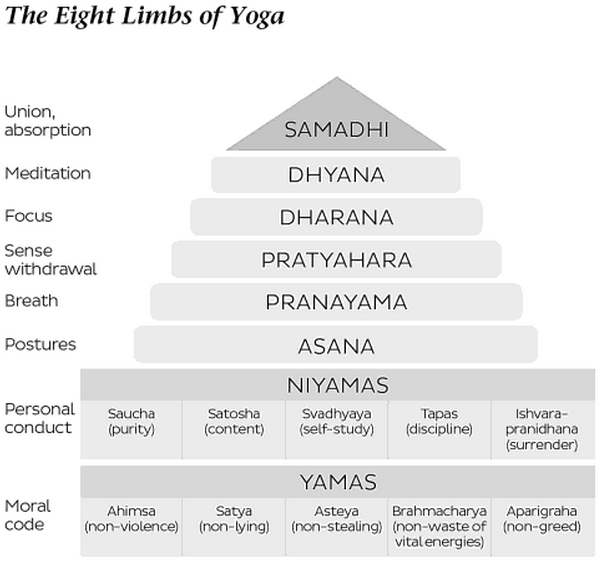Your Next Brain on Yoga?
There have been a handful of studies that suggest Yoga exercise and meditative practices can improve cognitive performance and brain function in adults and children. Just the kind of stuff we report on in the Next Brain Blog.
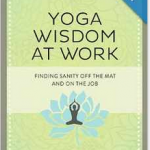 One challenge in using Yoga as a cognitive development technique is that most approaches appear to be limited to what you can do on an exercise mat or in quite isolation. That’s one reason the book Yoga Wisdom at Work caught my attention. The authors, Maren and Jamie Showkier, demonstrate through stories and practical tips ways you can apply Yoga “off the mat and on the job”.
One challenge in using Yoga as a cognitive development technique is that most approaches appear to be limited to what you can do on an exercise mat or in quite isolation. That’s one reason the book Yoga Wisdom at Work caught my attention. The authors, Maren and Jamie Showkier, demonstrate through stories and practical tips ways you can apply Yoga “off the mat and on the job”.
While they include material on Yoga postures, exercise and meditation, they also cover other fundamental aspects of Yoga including for example, moral code and conduct. In total there are eight areas or limbs of Yoga that are presented providing a practical and comprehensive approach.
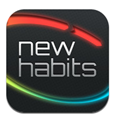 I’ve partnered with Maren and Jamie to convert the how-to content in their book into a deck of knowledge cards that can be used to practice Yoga wisdom one small-step at a time on a daily basis. You can access the results on NewHabits a free iPhone and iPad App. NewHabits comes with two free decks of knowledge cards (motivation and observation) and the Yoga deck is $0.99. Additional decks of knowledge cards covering all eight limbs of Yoga are in the works.
I’ve partnered with Maren and Jamie to convert the how-to content in their book into a deck of knowledge cards that can be used to practice Yoga wisdom one small-step at a time on a daily basis. You can access the results on NewHabits a free iPhone and iPad App. NewHabits comes with two free decks of knowledge cards (motivation and observation) and the Yoga deck is $0.99. Additional decks of knowledge cards covering all eight limbs of Yoga are in the works.
I am interested to hear from readers that use Yoga to improve their cognitive abilities. What technique or limbs do you use?
Categories: Ancient Ways, Cognitive Development, Software Tags:
Rules of Mental Engagement
One of the best ways to sharpen your mind is to debate others. Whether you do it formally or informally in written form or verbal form challenging the thinking of another person will give you a good mental work out.
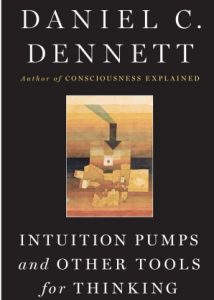 But what are the rules of mental engagement? How can it be done in a civil way that maximizes its brain boosting effects? One of the best suggestions I have seen comes from Daniel Dennett a well-known philosopher in his new book, Intuition Pumps and other Tools for Thinking.
But what are the rules of mental engagement? How can it be done in a civil way that maximizes its brain boosting effects? One of the best suggestions I have seen comes from Daniel Dennett a well-known philosopher in his new book, Intuition Pumps and other Tools for Thinking.
He starts the book with a quote that very much reflects the philosophy of the Next Brain Blog:
“You can’t do much carpentry with your bare hands and you can’t do much thinking with your bare brain.”
His specific suggestion for engaging others is summarized in the section on Rapoport’s Rules and involves a four step process:
- First you summarize the other person’s point and have them confirm that you understand it.
- List all the points you agree with.
- List the new things that you have learned from studying the other person’s position.
- Finally offer an initial criticism or rebuttal.
An excellent way to positively provide feedback and engage others in discussion and debate. It also gives your brain an excellent workout by requiring emotional control, replay, reflection and critical reasoning.
Rapaport’s rules are only one example of the many thinking tools Dennette reviews. I will blog about several others later this month.
Next time you find yourself disagreeing with someone apply Rapaport’s rules and give your brain a workout.
Categories: Ancient Ways, Executive Function Tags:
More Evidence for Mind-Body Techniques
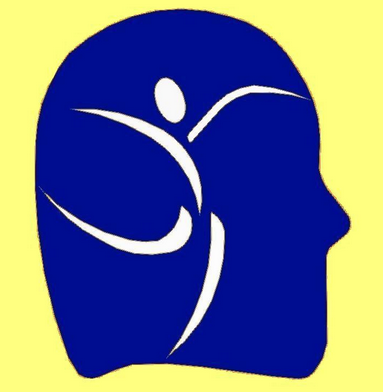 In the Next Brain Blog we look at evidence-based techniques for achieving peak mental performance at any age. What can we do to maintain brain health and improve cognitive performance?
In the Next Brain Blog we look at evidence-based techniques for achieving peak mental performance at any age. What can we do to maintain brain health and improve cognitive performance?
Several posts have focused on mind-body techniques. Such techniques ask us to focus on the connection between how we think and feel and various bodily functions and activities. Yoga, mindful breathing and mediation are examples. While such techniques are often viewed as fuzzy or new age, we have been documenting the growing evidence for how they improve brain function and cognitive performance on the Next Brain blog.
Additional evidence was recently published by the Boston University School of Medicine. They conduct a class with 27 medical students on Embodied Health: Mind-Body Approaches to Well-Being. It ran for 11 weeks and covered the neuroscience and methods for slow breathing, resistance breathing, Yoga, the placebo effect and mindful mediation practices. Students were asked to practice the methods at least three times per week.
Assessments before and after the course revealed a statistically significant improvement in the student’s capacity for self-regulation and self-compassion.
Self-regulation is our ability to manage our thoughts, feelings and impulses in order to achieve planned behaviors and goals. A capability that is essential for improvement, success and well-being in any walk of life.
For more information you can access the entire article for free. Be sure to check out table one that lists the topics and required readings for the course.
While the Boston work does not surface any new techniques it does add to the evidence for the effectiveness on the mind-body approach. The fact that doctors-to-be are learning about them in medical school signals a maturing and acceptance of the the approach.
How are you using mind-brain techniques to improve your cognitive performance?
Source of Image: Dr. Deb’s Psychological Perspectives
Categories: Ancient Ways, Executive Function, Manage Emotions, Training Tags:
Tai Chi Boosts Brain Volume and Performance
 Research led by the University of South Florida found elderly Chinese that practiced Tai Chi three times a week scored significantly higher on thinking and memory tests than a control group. They also demonstrate that the volume or physical size of the subject’s brain increased rather than experiencing age-related shrinkage.
Research led by the University of South Florida found elderly Chinese that practiced Tai Chi three times a week scored significantly higher on thinking and memory tests than a control group. They also demonstrate that the volume or physical size of the subject’s brain increased rather than experiencing age-related shrinkage.
This is an interesting finding because it suggests a non-areobic form of exercise can improve brain function.
Tai Chi is a type of martial arts. It includes five training elements the most widely known being the slow solo hand movements. The training emphasizes focusing your mind exclusively on the motion being practiced. This produces a meditative-like calm which might account for the brain boosting effects.
For more details on the brain health benefits and a video introduction check out the Next Brain Blog post on Tai Chi for Cognitive Training.
Source of Image: China on the brink
Categories: Ancient Ways, Lifestyle, Memory and Learning, Older Adult Tags:
Rosemary Scent Boosts Mental Speed & Accuracy
 I am often asked if aromas or scents improve brain function and enhance cognitive performance. Several previous posts on the Next Brain blog have highlighted peppermint, cinnamon, vanilla and citrus. Now, new research shows a link between aroma generated by rosemary oil and improved speed and accuracy in analytic and visual tasks. Rosemary contains an ingredient that impacts our neurochemistry. In the experiment the more of this ingredient that was absorbed the greater the chance of improved cognitive performance.
I am often asked if aromas or scents improve brain function and enhance cognitive performance. Several previous posts on the Next Brain blog have highlighted peppermint, cinnamon, vanilla and citrus. Now, new research shows a link between aroma generated by rosemary oil and improved speed and accuracy in analytic and visual tasks. Rosemary contains an ingredient that impacts our neurochemistry. In the experiment the more of this ingredient that was absorbed the greater the chance of improved cognitive performance.
For more information you can read the research article in the journal of Therapeutic Advances in Psychopharmacology or a another blog post.
Interested to hear from readers that use rosemary and other aromas to boost alertness, focus, processing speed, mood or other cognitive factors.
Categories: Ancient Ways, Mental Focus, Other, Problem Solving Tags:
Your Brain on a Bird’s Music
 Music created by Humans can have a big impact on brain function and cognitive performance. It can stimulate emotions, trigger recollection and association and even stimulate learning and creativity. But what about Nature’s music, more specifically a singing bird?
Music created by Humans can have a big impact on brain function and cognitive performance. It can stimulate emotions, trigger recollection and association and even stimulate learning and creativity. But what about Nature’s music, more specifically a singing bird?
A recent article, Can Bird Song Boost Your Brain?, describes an interesting ongoing 3-year study to take a scientific look at how bird song impacts our moods, creativity and cognition in general.
The article includes some sample bird songs you can listen to. Try them out. Do any trigger a positive cognitive or emotional reaction?
Many bird song recording are available making it easy to play them as background sound or fold them into a brain training routine. I am interested to hear from readers that use bird song or other natural sounds as part of their Next Brain training program.
Categories: Ancient Ways, Music and Audio Tags:
Can Singing Significantly Improve Brain Function?
 The answer is yes according to the makers of SingFit an App for the iPhone and iPad that is due out in just a couple of weeks. Grounded in well-established principles from music therapy they claim:
The answer is yes according to the makers of SingFit an App for the iPhone and iPad that is due out in just a couple of weeks. Grounded in well-established principles from music therapy they claim:
“Scientific studies have shown that singing in general positively impacts the levels of hormones responsible for regulating mood, blood pressure and social bonding, including serotonin, cortisol and oxytocin. Furthermore, singing has been proven to help increase immune system strength and respiratory function while decreasing stress, pain and agitation. Imaging studies also reveal that singing can promote cross hemisphere brain activity, which can increase mental neuroplasticity and improve cognitive functioning.”
The app is free but they hope to sell you a $13 a month subscription for more content. I’d like to hear from readers that use this app or other forms of music therapy to build brain function and improve cognitive performance.
Categories: Ancient Ways, Memory and Learning, Music and Audio, Problem Solving, Sleep Tags:
Our Brains Are Optimized for Ancient Ways
 Found an interesting blog post that reviewed five recent scientific studies on protein SIRT1 and its possible connection to improved brain function and cognitive performance. The post includes 10 steps to enhanced brainpower many of which we have covered in the Next Brain blog. In paraphrased form these include:
Found an interesting blog post that reviewed five recent scientific studies on protein SIRT1 and its possible connection to improved brain function and cognitive performance. The post includes 10 steps to enhanced brainpower many of which we have covered in the Next Brain blog. In paraphrased form these include:
- Eat and exercise like a wild ancient human
- Take supplements including fish oil, vitamin D and resveratrol.
- Eat blueberries, drink coffee or tea and limit alcohol
- Be an aggressive and continious learn
- Get plenty of sleep
The conclusion is:
“The research basically says: to enhance your brain, you should adjust your lifestyle, diet, and use of compounds or drugs to increase levels of SIRT1 in the brain. The target: an enhanced mind — as alert as those of our ancestors — that thinks more clearly, stays smart, and learns longer.”
The underlying theme here is that the lifestyle and diet of wild ancient humans is the context in which much of our brain development occurred. This means our brains are naturally optimized to work best under those conditions. As conditions are radically different today, reproducing the ancient ways as describe above is one strategy for enhancing cognitive performance.
Categories: Ancient Ways, Memory and Learning, Mental Focus Tags: vitamins
Tai Chi for Cognitive Training?
Tai Chi is an ancient Chinese practice for linking mind and body in a martial art. Today it is a low-impact form of exercise and wellness that may improve a number of cognitive functions including mental focus, memory, managing emotions and perception.
Tai Chi involves a series of fluid, slow-paced motions and stretches that have been described as “meditation in motion”. The benefits of Tai Chi have just started to be formally studied. An in depth article on the Mayo Clinic website, Tai Chi: Discover the many possible health benefits, reports there is preliminary evidence for these benefits:
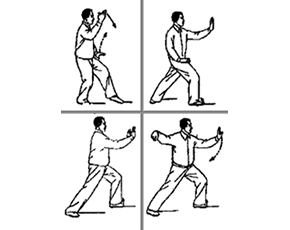 Reducing anxiety and depression
Reducing anxiety and depression- Improving balance, flexibility and muscle strength
- Reducing falls in older adults
- Improving sleep quality
- Lowering blood pressure
- Improving cardiovascular fitness in older adult
- Relieving chronic pain
- Increasing energy, endurance and agility
- Improving overall feelings of well-being
 Clearly these benefits go beyond improving brain function and cognitive performance. Getting started in Tai Chi is not hard. There are many fine resources available for little cost. You can produce results in as little as 8-12 weeks.
Clearly these benefits go beyond improving brain function and cognitive performance. Getting started in Tai Chi is not hard. There are many fine resources available for little cost. You can produce results in as little as 8-12 weeks.
Check out this 5 minute free video for a decent introduction. It won’t make you an expert but it should be enough to determine if you want to try more. There is a product pitch but it is soft.
I am interested in readers’ suggestions for resources for learning Tai Chi, especially those that emphasize improving brain function and cognitive performance.
Categories: Ancient Ways, Manage Emotions, Memory and Learning, Mental Focus, Perception, Training Tags: cognitive fitness, embodied cognition, exercise
Silence at the Right Time Improves Cognition
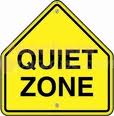 A Psychology Today blog has an excellent post on the effective use of silence. It is a good reminder that just being quiet often gives the brain a chance to work well. Being silent can improve your listening skills, self control and even your attractiveness to others. The key is to know when to get into the quiet zone – for example, when you are angry or when someone else is speaking.
A Psychology Today blog has an excellent post on the effective use of silence. It is a good reminder that just being quiet often gives the brain a chance to work well. Being silent can improve your listening skills, self control and even your attractiveness to others. The key is to know when to get into the quiet zone – for example, when you are angry or when someone else is speaking.
When it comes to exercising the power of silence to achieve self-control the author writes:
“Think how much more in control you’d not only appear but actually be if your first response upon hearing or seeing something that sparks a strong reaction in you wasn’t to lash out emotionally but instead to become–silent. Silence is a terrific substitute for self-control, not only creating its appearance, but over time and with practice its substance as well.”
Although similar to the “count to 10 rule” for managing anger it is a bit different. The idea is to focus on being silent or learning to get into the quiet zone.
Interested to hear from readers that practice the power of silence and how it has helped them be more effective.
Categories: Ancient Ways, Executive Function, Lifestyle, Manage Emotions Tags:

